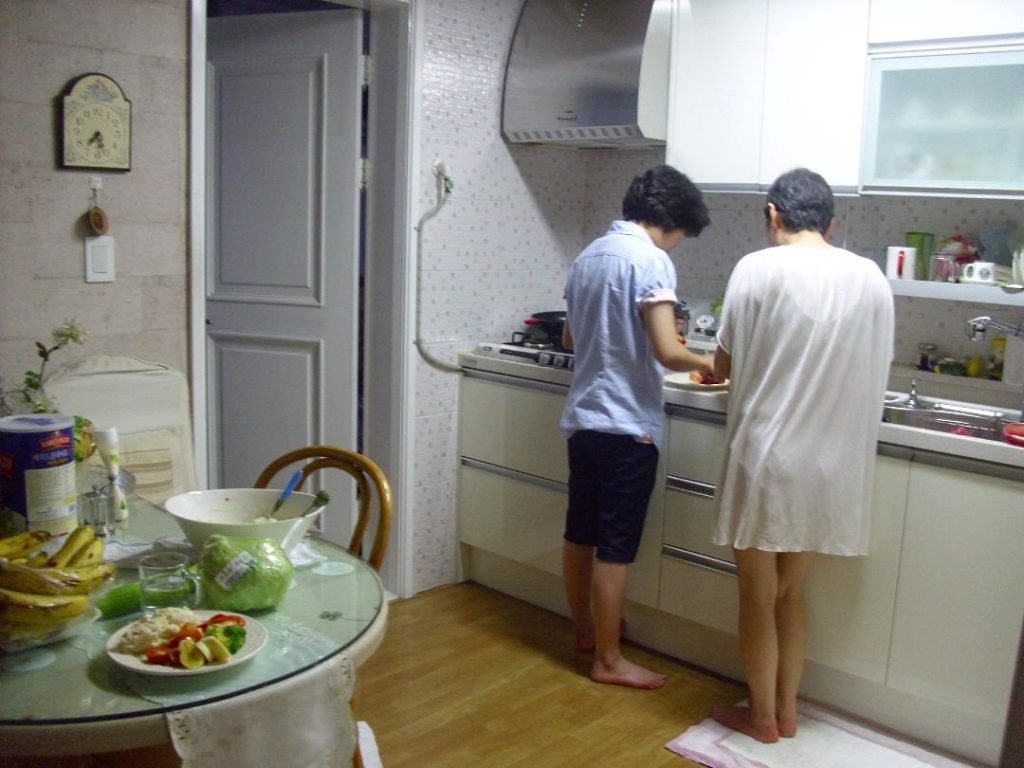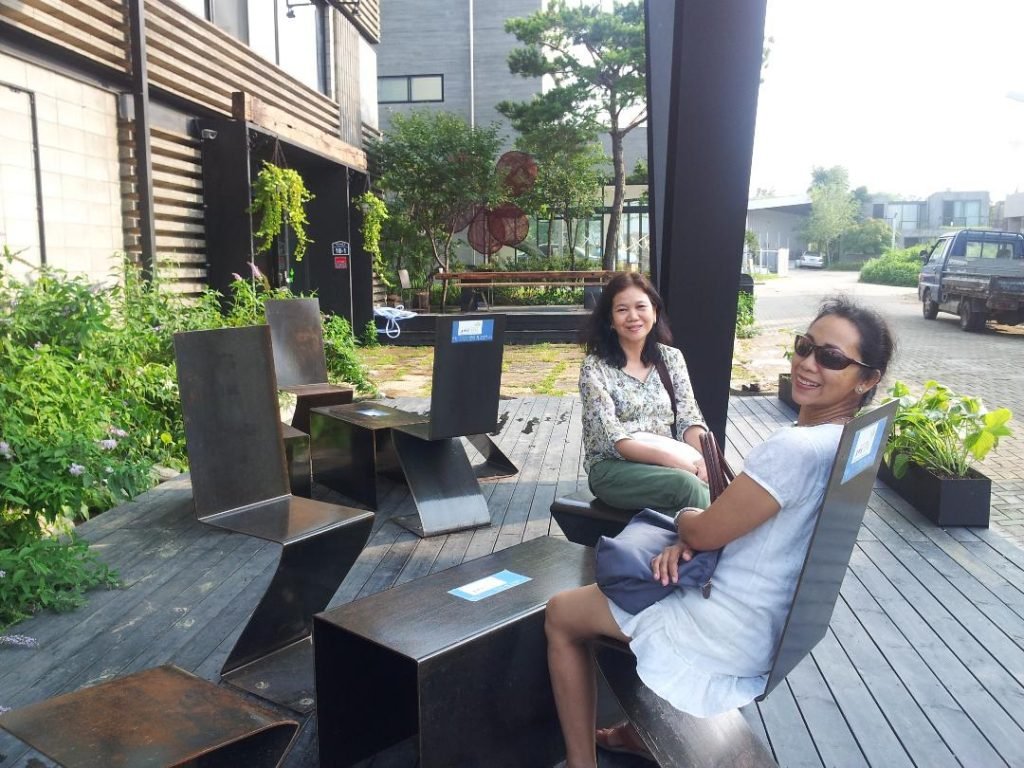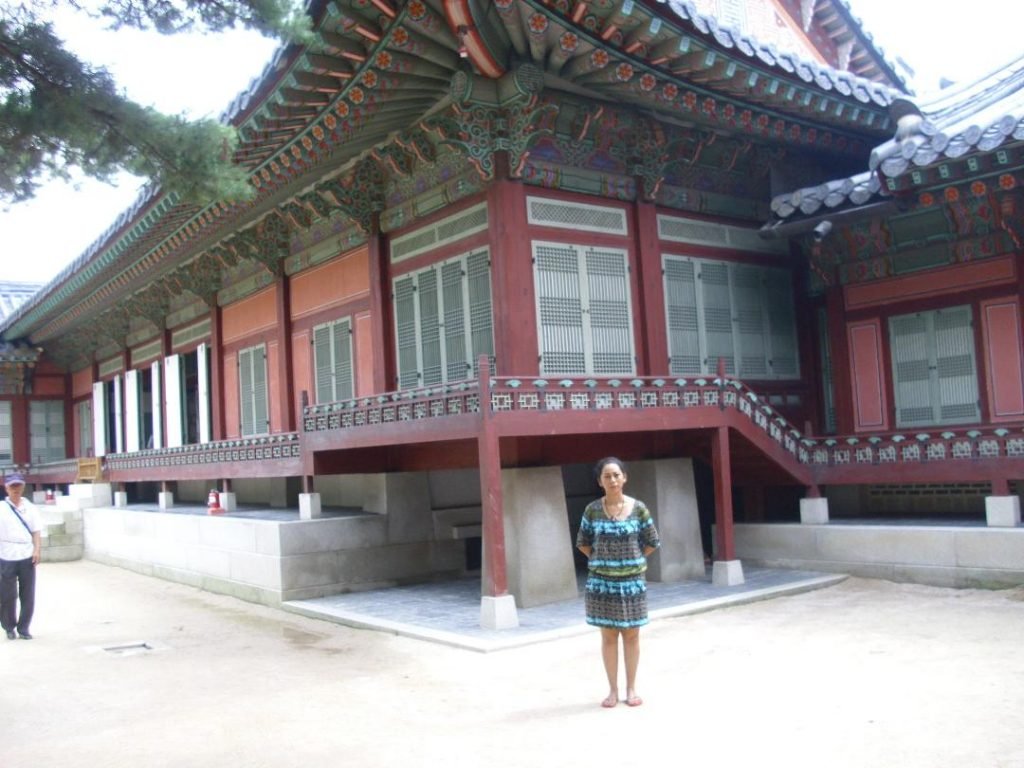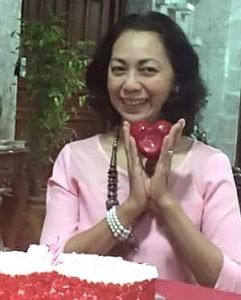It was dark already yet my friend and I were still seated at a bus stop across the Jangam Metro station where we had gotten off after a city tour of Seoul. We were wondering how on earth could we get a taxi or if there is any where we were. Min, my hostess, had told us to wait at the stop and take a taxi to her apartment.

It seemed like an hour had passed and the two taxis that I hailed just sped by. Seated to my right was a woman in her forties. I turned to her and asked, “Taxi odiseo?” She replied in rapid Korean. I said, “Molayo (I don’t know.)” Yet she kept on talking in her staccato tongue and stood up and waved her arms here and there. It was obvious that she wanted to help. She walked up and down the pavement and I followed her like a dog trying to grasp what she wanted to tell me. Then she turned to one of the men drinking beer at an al fresco bar and talked to him in Korean. I asked him if he spoke English but he shook his head to my chagrin. So, I took out Min’s phone number and showed it to the woman. She dialed her phone and talked to Min in a highly agitated voice. She gave me the phone and Min told me that she’ll be there in 10 minutes. I was so relieved that I never bowed as many times as I did that evening. To my relief, Min arrived In a jiffy. My angel refused our offer of payment for her phone so after a gazillion bows and “Kamsa hamnida’s” we rode away.

Although the above incident was a major one, many small ones have occurred to create a collage of kindness. For example, at Myeong-dong, a man sensed we did not know how to get to the other side after disembarking from the train. He went to us twice to make sure we got what he meant when he said in Korean that we had to take the underpass. (Ah, body language is a universal language.) At the Metro while looking perplexed over which stairway I should take, a young man went out of his way to approach me and ask in English if I needed help. He must have seen the look on my face and the map I was holding and put two and two together. At Dongdaemon, I asked a tall male executive in a smart navy suit for directions but he was as clueless as I was. Then, two Korean men who happened to pass by asked me if they can help. Not only did one of them point out the market but both crossed the street with me to get there.
I discovered that if I only keep an open mind and not be too suspicious of strangers, help comes unexpectedly. My seatmate on the plane from Manila to Incheon was a Texan named Megan. She had lived in Korea for two years teaching at one of the many ESL (English as a Second Language) schools there. She recalled that she arrived in Korea alone but didn’t have a difficult time with finding her way around the airport and taking the bus to her destination. Foreigners seem pretty safe around the country although twice I had to put up with some snickering from local girls. The first was because I didn’t know how to flush the toilet which was the kind that you squat on, not sit on. (“Hahaha. Foreign,” the pretty young things chorused as soon as I turned my back.) The other was when, on a rainy evening, I peeked into a restaurant and asked if they sold gimbap. Did they laugh because I spoke in English or because I wanted gimbap? Molayo.
Living in Korea can be expensive. Cost of living is quite high. Imagine paying KW60,000 (P2,400) for a one-hour body massage or KW40,000 (P1,600) for a half hour one. Philippine bananas sell for double our local price. Nectarines are at P40 a piece. Yet public services are efficient. Surroundings are clean and orderly. People are in general good health and enjoy a long life span. Plus you can eat all the kimchi you want.

The most flattering comments about the country that I heard from non-natives were from the pretty and plump mother with three very young daughters. They, like me, were waiting for their Manila-bound flight at the Incheon International Airport. The whole family was going to Boracay. They were from South Africa and had lived in South Korea for eight years. Mother and father work as English teachers outside Seoul. One or two daughters were born in Korea and all three are fluent in the native tongue hangul. After living a few years in Korea, the family moved back to South Africa but the parents decided that Korea was a better country to settle in. “People here have respect for others and others’ belongings. They don’t touch what isn’t theirs. My children are safe and we all love it here,” the mother said. I could see that for myself when I whiled away an hour at a small gingko-lined park near the apartment that I stayed in. Very young children walked by without an adult in sight. The youngsters are courteous and respectful. Citizens usually obey the traffic regulations. The atmosphere is one of quiet and peace. Sitting there in thoughtful solitude, I realized that I missed Bacolod. There’s really no place like home.

